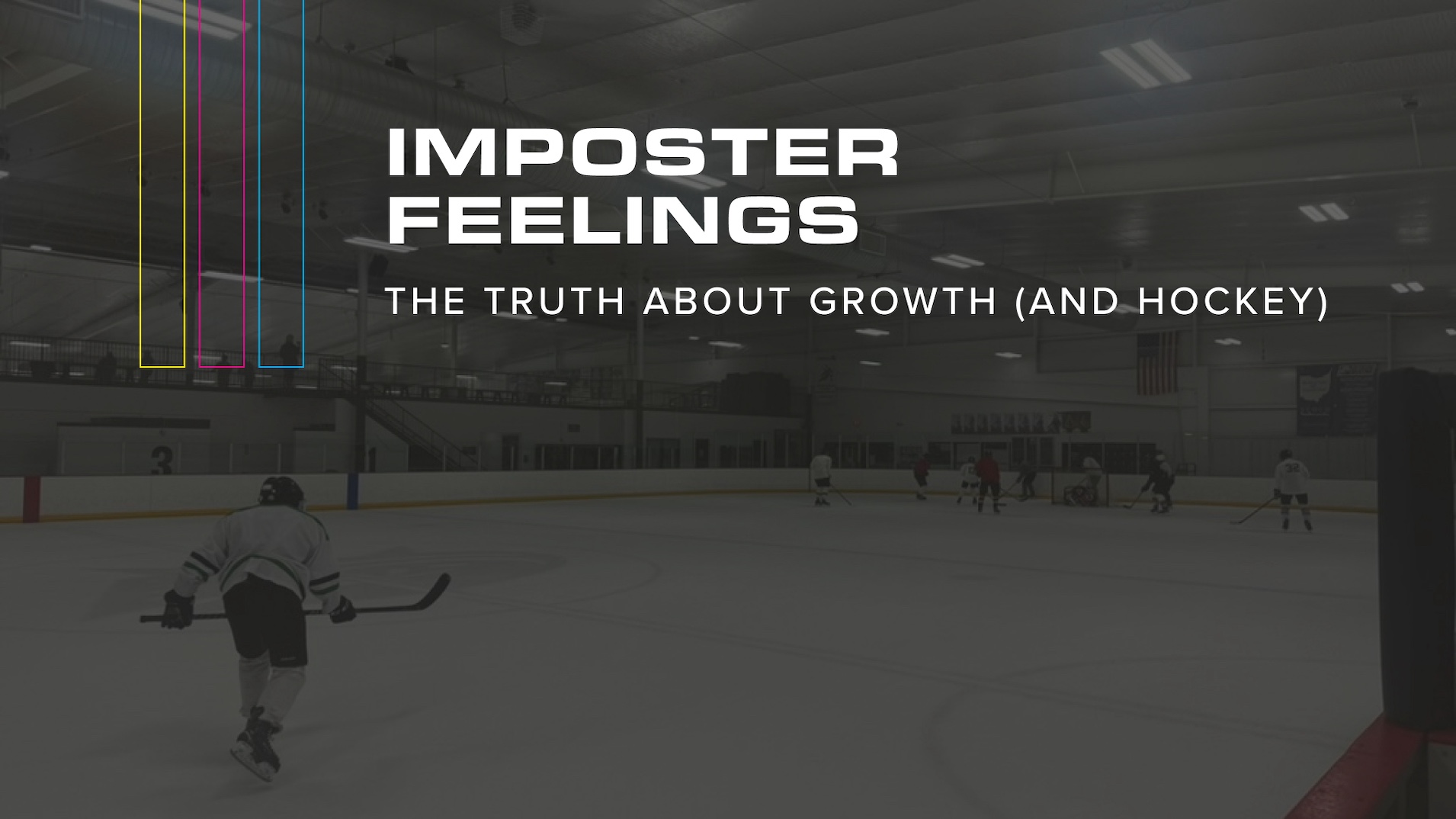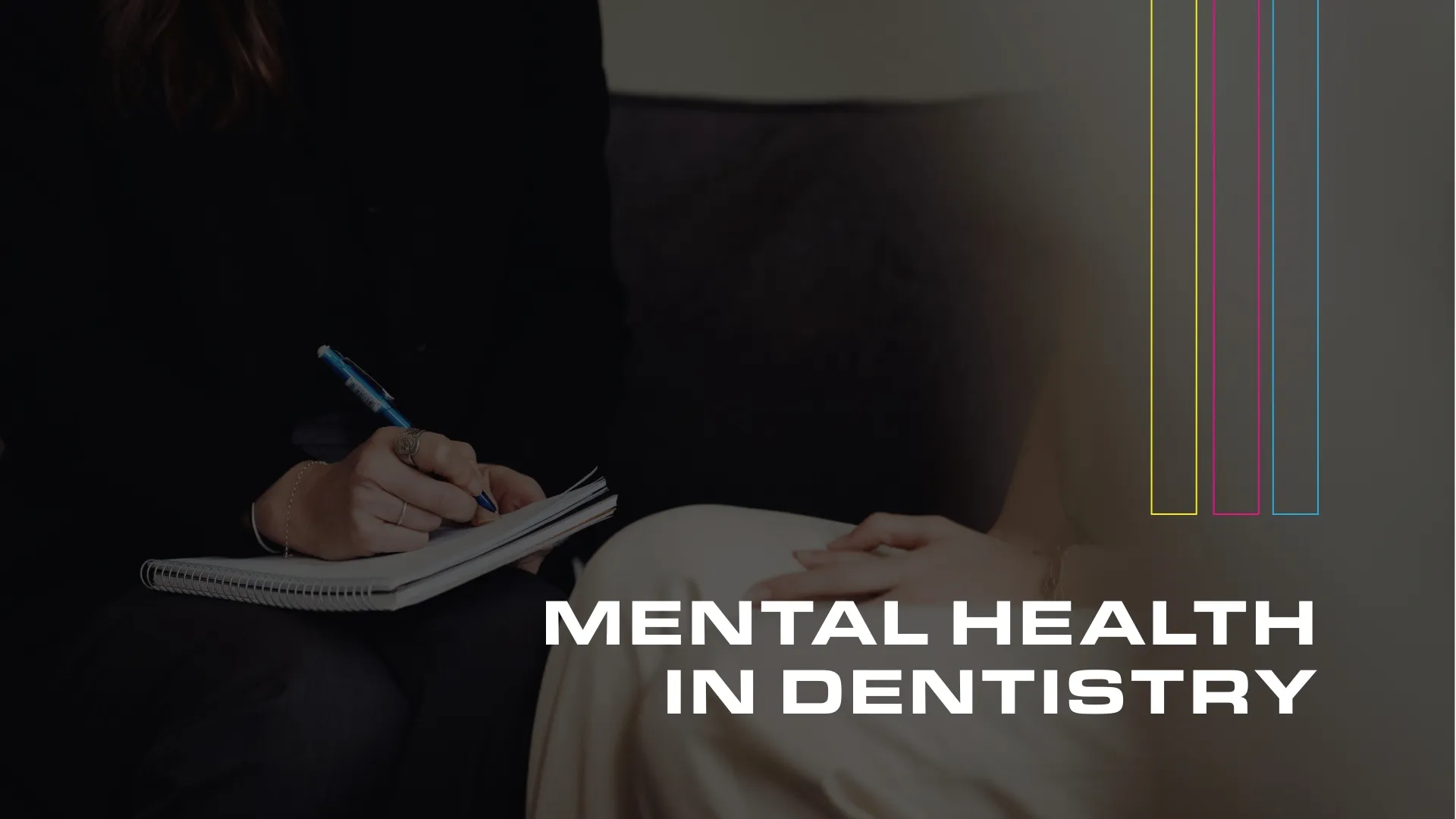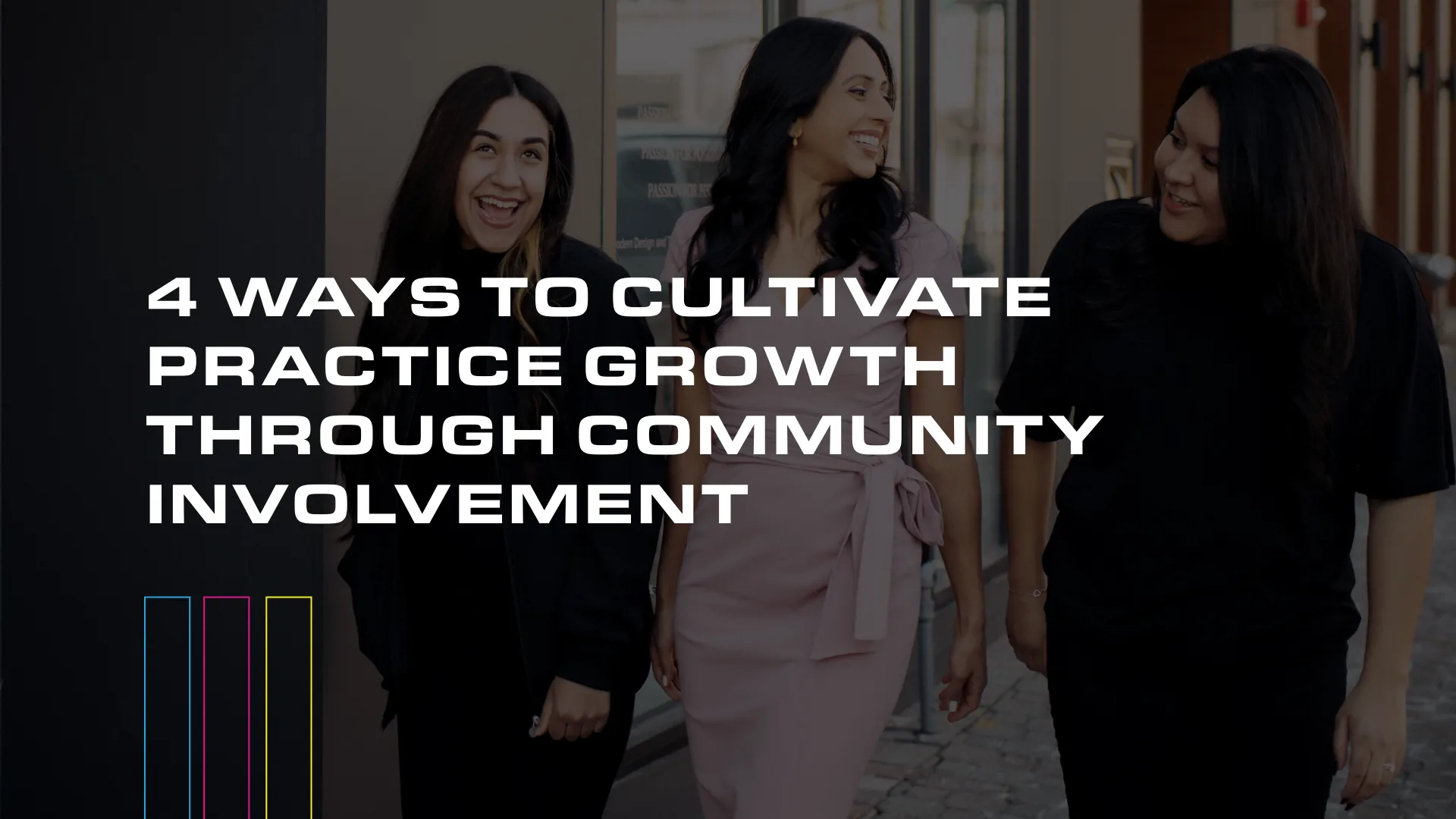Imposter Feelings
The Truth About Growth (and Hockey)
I’ve never really considered myself athletic.
I told myself I was bad at sports when I was a kid, and I made a lot of choices to confirm that belief. I was the nerdy one. The computer guy. The 3rd grader who cried when his parents signed him up for a basketball camp over winter break.
So how, at age 42, did I end up at an ice rink, wearing full hockey gear for the very first time – standing at the edge of the rink, watching grown men launch slap shots into the glass so hard I could feel it in my chest?
Learning to play hockey had sounded like a fun, exciting idea; right up until this exact moment.
The voice in my head kicked in real fast:
"You shouldn’t be here."
"You’re not a hockey player. You’re not even athletic."
"You’re gonna look like a fool and get laughed out of here."
This, right here, was one of the clearest moments I’ve ever had of what people call imposter syndrome.
Personally, I prefer to call them imposter feelings, because "syndrome" makes it sound like a diagnosis. And really, this is just part of being human.
What Are Imposter Feelings?
Imposter feelings are those thoughts that pop into your head and say, “I’m faking it.” Or, “Someone made a mistake hiring me.” Or, “Any minute now, they’re going to figure out I don’t belong.” You might brush off praise, chalk up success to luck, and convince yourself others don't notice the gap between what you seem to be and what you actually are.
They show up even when you’ve worked hard. Even when you’ve earned your spot. Even when people around you believe in you.
That’s the imposter story. And a lot of us are telling it to ourselves. Psychologist Pauline Clance, who first coined the term, described it like this:
“Impostor phenomenon is a psychological experience of believing that one’s accomplishments came about not through genuine ability but as a result of having been lucky, having worked harder than others, or having manipulated other people’s impressions.”
How Common Are These Feelings?
I thought it was just me. But it’s not.
- About 70% of people report feeling like imposters at some point.
- 72% of women, 63% of men.
- Even about 70% of CEOs say they’ve experienced it too.
So if you’ve ever felt like a fraud, you’re in good company.
And for the record? Around 13% of people are chronic liars and 10-15% show narcissistic traits. So maybe the rest of us are just telling the truth? 😅
Why Do We Feel This Way?
There are a lot of reasons imposter feelings creep in. Here are some of the most common:
Perfectionism
If you believe anything less than flawless is failure, you’ll never feel good enough.
Psychologist Dr. Valerie Young puts it this way:
“Perfectionism is a big driver of impostor feelings. If you always feel like you need to do things flawlessly… you’re setting yourself up for failure.”
Transitions
New roles, new teams and new challenges are fertile ground for doubt.
It doesn’t matter how many times you’ve proven yourself. When you step into something new, your brain usually forgets all that and whispers, “This time, you’re in over your head.” Sometimes the very moment you should be celebrating a next step is the exact moment those imposter feelings hit the hardest.
Underrepresentation
If you rarely see people who look or think like you in a space, it’s easy to think you don’t belong there. And in dentistry, that can be especially real. Whether you’re a woman in a male-dominated specialty, a young doctor leading a team twice your age, or the first in your family to run a practice. When you don’t see many mirrors of yourself, it’s easy to mistake difference for deficiency.
Lisa Orbé-Austin, another expert on this topic, says:
“When you’re one of the few (or the only) in a room, it’s easy to feel like you’re under a microscope. That pressure can feed the sense that you don’t really belong.”
Invulnerability
If no one else is being honest & vulnerable, it’s easy to assume you’re the only one who’s unsure of themselves. Sometimes our environments reward confidence theater over honest growth.
Expectations
If you’re a dentist, you probably know this feeling all too well. The pressure to be the expert in the room, to perform clinical work flawlessly, lead a team, manage a business, and keep patients happy. And if you’re anything like the dentists I know, you weren’t trained for half of that. That’s a perfect storm for imposter feelings.
Reframing the Feeling
Back to the hockey rink.
I stood there – skates on, stomach turning, hearing that inner voice say, “You don’t belong.” But what if that feeling wasn’t a warning sign, but a sign of something else entirely?
Here’s what I’ve come to believe: imposter feelings don’t mean you’re failing. They mean you’re growing.
They show up when you’re pushing yourself. Trying something new. Doing something outside your comfort zone – something that matters to you.
Feeling like an imposter isn’t proof you’re unqualified. It’s proof that you care.
So What Do You Do With It?
These are some things that have helped me with impostor feelings:
Name it.
Say it out loud: “I’m having imposter feelings.” That step takes it out of the shadows. Once you’ve named it, it stops being this vague, paralyzing fog and becomes something you can actually deal with.
Talk to someone.
A mentor, a coworker, a friend. Chances are they’ve felt it too. Honestly, some of the most freeing conversations I’ve ever had were with people I respected who admitted, “Yeah, I’ve felt that way too.” If you’re a dentist, your best lifeline might be another doc who knows what it’s like to be both clinician and CEO in the same hour.
Keep a wins folder.
Save the thank-yous, the kind emails, the small victories. Future-you will need them. In dentistry, maybe that’s a note from a patient whose life you changed with a smile makeover, or even a simple, “Thanks for getting me in so quickly.” When the doubt creeps in, those reminders tell the truth about your impact.
Show yourself some grace.
Talk to yourself like you would your favorite teammate. Not your worst critic. You’d never tell a colleague, “Wow, you’re terrible at this, you shouldn’t even try.” Don’t say it to yourself either.
Do it anyway.
You don’t have to feel confident to take the next step. You just have to take the next step. Schedule the big case. Lead the team meeting. Sign up for that CE course you’re nervous about. Courage isn’t the absence of fear—it’s deciding to move forward anyways.
Dr. Valerie Young puts it perfectly:
“People who don’t feel like impostors are no more intelligent, capable or competent than the rest of us. They just think different thoughts.”
Here’s the key: You’re not faking it. You’re becoming it.
Team Culture Matters
When I joined a beginner hockey league, I found that I wasn’t the only one who was just figuring it out. And something shifted in my mind: I stopped assuming everyone else was some elite player who had it all together.
We all made mistakes. We had a lot of fun. And we learned faster.
And I’ve seen the same shift happen in dental practices. The best ones, the ones that grow and retain patients and talent, are the ones where vulnerability isn’t a liability. Where a new associate can say, “I’m nervous about this case,” and get support, not judgment. Where the doctor doesn’t have to pretend they have all the answers.
Because when your culture celebrates honesty and progress instead of perfection, your whole team gets better, together.
Brené Brown said it well in her book, Dare To Lead:
“When leaders own their self-doubt and talk about their growth, it signals to others that they can do the same. It creates a culture where it’s safe to learn out loud.”
My Work Story
It’s not just on the ice. I’ve felt it at work, too; stepping into new roles, leading meetings, giving feedback, even just hearing a compliment I wasn’t sure I deserved. That same voice creeps in: “You don’t belong here. You’re going to be found out.”
But here’s what’s different now: I recognize it. I know that voice. And instead of assuming it means I’m unqualified, I take it as a signal that I’m in the middle of something that matters.
I’ve learned to spot that voice when it shows up, and as much as possible, I don’t let it take the wheel. Because the truth is, every time I say yes to something that stretches me, even if it scares me a little, it’s a step forward. A vote of confidence. A reminder that I’m not an imposter, I’m just growing.
And honestly, that’s the paradox: the very moments where you feel the most like a fraud are often the exact moments you’re building the muscles you’ll rely on later.
.jpg)
Final Thought
If you’ve ever thought, “They’re going to realize I have no idea what I’m doing”… me too.
Especially if you're a dentist, wearing all the hats: doctor, business owner, team leader, therapist, marketer. It’s easy to feel like you’re making it up as you go.
You’re not broken. You’re not a fake. You’re in progress. And that’s exactly where you’re supposed to be.






